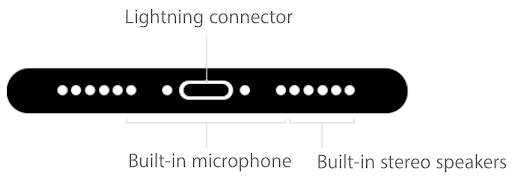Get To Know the FBI Agent in Your Phone
Have you ever found yourself on a niche yet relatable side of TikTok and wondered, how did I get here? Has a product you recently discussed with a friend been advertised to you on multiple platforms? When you get in your car after a long day, does Apple Maps typically notify you how long the drive is to get home without any prompting? Rhetorical questions aside, we all know the answer is most likely yes when considering the endless amounts of personal data being harvested via smart devices, and, duh—the FBI agent in your phone does not take days off. From algorithms to advertisements, digital footprints to data mining, it’s about time you get to know the surveyor living inside your phone, laptop, Alexa, Google Nest, car, and, for the most part, any other devices you may own.
Let’s first tackle the question, “Is my phone listening to me?” In short, yes. But wait, don’t freak out! It’s not all that bad… sort of. It all started in 2011 when Apple first introduced our girl Siri to the consumer market, thereby giving way to a plethora of other artificially intelligent “virtual assistants.” Supposedly, devices are only eavesdropping for three main reasons: to carry out verbal demands, track data, and deliver targeted advertisements—or at least that’s what these companies claim. Realistically, to most efficiently assist users, our device's onboard microphones have to constantly listen for specific triggers, such as, “HEY ALEXA!” Nonetheless, it seems as though the primary concern shouldn’t center around whether our phones are listening to us or not, but rather, are our phones recording us? And if so, what are they doing with this data? According to Apple, voice commands are processed locally on the device, and your iOS does not start recording until it hears “Hey Siri.” Once your request has been recorded, it then uploads the audio file to Apple's servers for processing and voice recognition improvement. Yes, that’s strange, but is this really doing much harm? Does this directly affect me?
Well, potentially. Recently, the cybersecurity software developers at Nord VPN raised claims that “a report revealed that Siri can sometimes be mistakenly activated and record private matters, such as people having sex, discussing business, and even talking with their doctors, all of which might later be passed on to contractors responsible for analyzing voice recordings.” Further, and perhaps even more problematically, another article by Forbes cites Tim Cook, Apple’s CEO, as having stated, “We at Apple believe that privacy is a fundamental human right. We also recognize that not everyone sees things as we do. In a way, the desire to put profits over privacy is nothing new. These scraps of data, each one harmless enough on its own, are carefully assembled, synthesized, traded, and sold. Taken to its extreme, this process creates an enduring digital profile, and lets companies know you better than you may know yourself.” But, Tim, what if I don’t want them to know me? Then what?
Unfortunately, this practice is technically legal due to the fact that when using a virtual assistant, you agree to the terms and conditions of the service provider “and if you’ve given your consent in your Google Assistant settings, for instance, it’s legal to track your conversations with Google Assistant, Siri, or Alexa for marketing purposes.” Although, voice assistants aren’t the only perpetrators. In fact, there are many other intricate ways your data is being collected. Comparitech, a pro-consumer website that aims to improve cyber security, asserts that precisely where your data ends up can be widely circumstantial, “Some of it is kept briefly then disposed of, some is kept long term. A lot of the time, it’s used to train algorithms. Large amounts are traded or sold. Sometimes it’s used in targeted ads for businesses. Sometimes the data is even-handed over to various government agencies.” While there are endless amounts of possible surveillance methods, the central figures snooping for your data include network providers, phone manufacturers, operating systems, applications, third-party applications, and many, many more.
As for most technology, there are certainly pros and cons to data mining. For instance, it helps researchers forecast market trends, enhances customer experiences, allows consumers to connect with personalized media, and, best of all, floods my FYP with corgi content and maximalist interior design. On the flip side, when companies are able to harness this much power over consumers, data mining quickly backfires into a potentially dangerous and invasive situation. Yet, in light of the rapidly growing dependence on smart technology, it can become increasingly difficult to attain total anonymity. Therefore, the best way to combat this is to disable the microphone feature on your devices or utilize a virtual private network (VPN) that encrypts your digital activity. So, as for now, if you aren’t quite ready to break up with Siri, just don’t say or do anything sketchy. Simple, right? Honestly, I probably won’t be disabling Siri any time soon because, hey—at least she’s always there to lend an ear.
Strike Out,
Writer: Gracie Wipfli
Boca Raton
Gracie Wipfli is a Senior Editor for Strike Magazine, passionate about uniquely communicating with the world through writing. She is a woman of many words... in composition. You can reach her at graciewipfli@gmail.com



